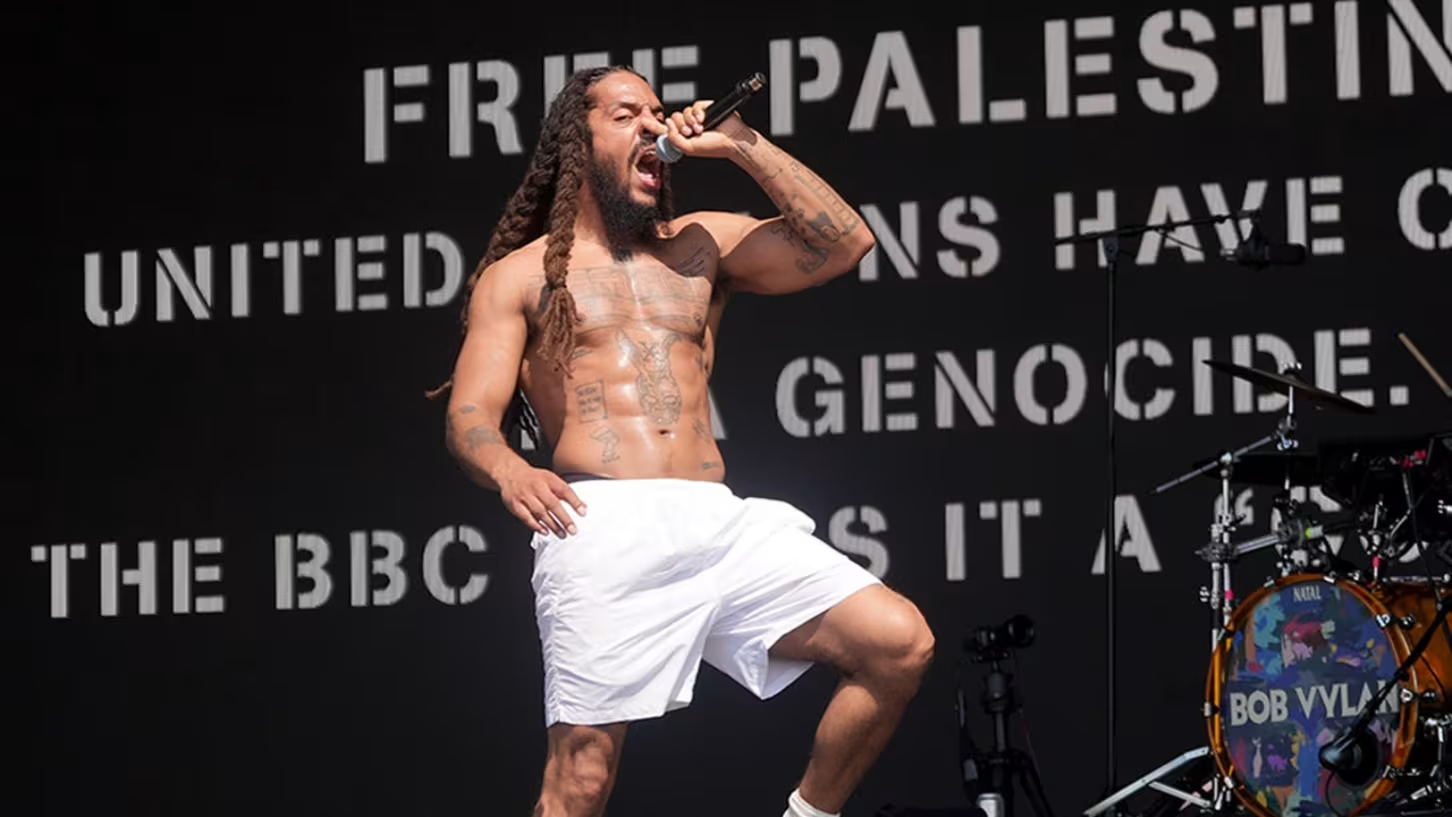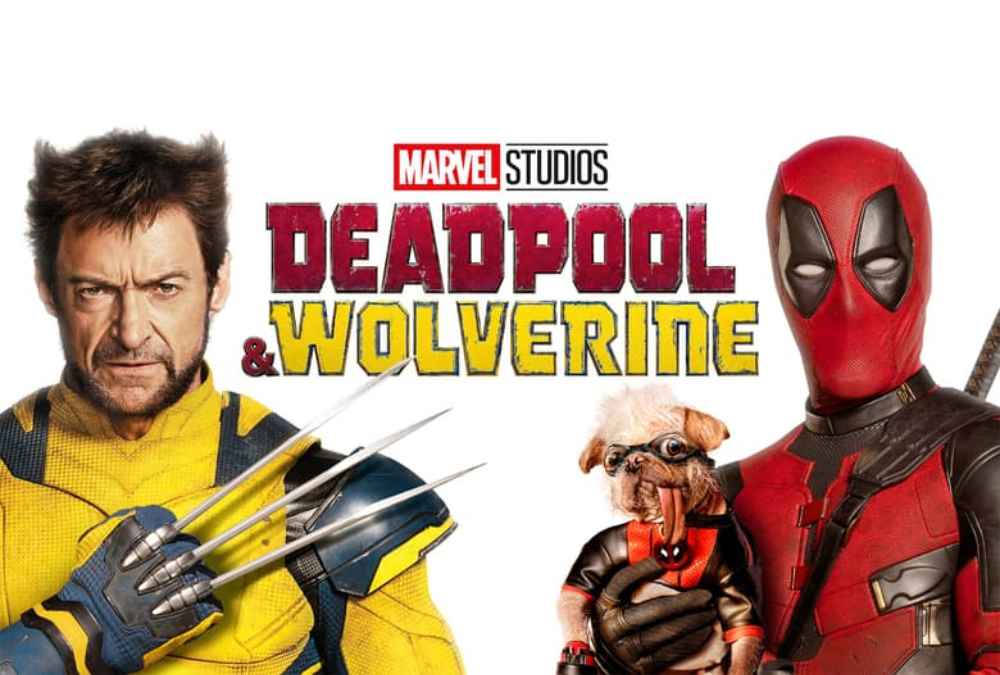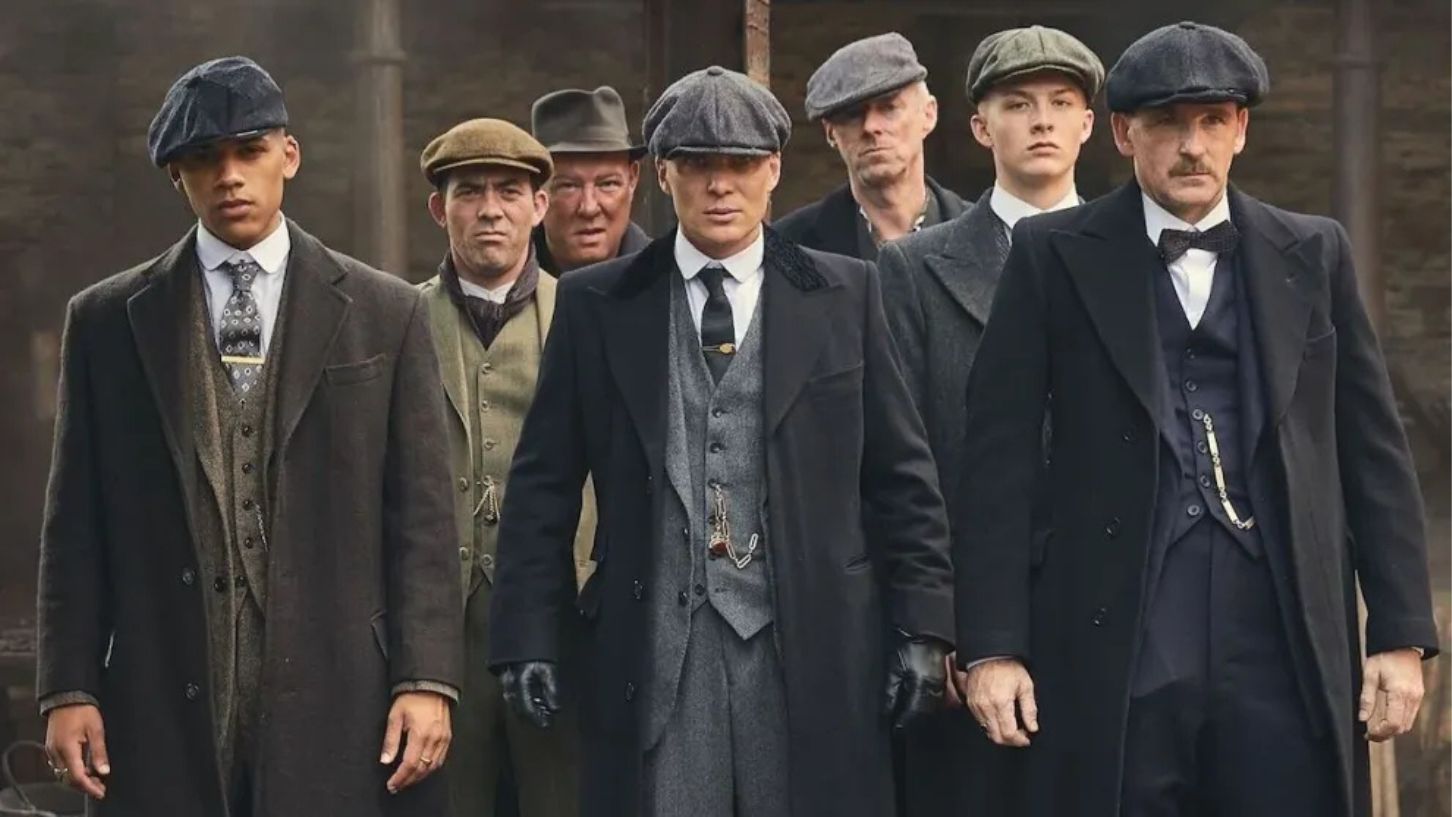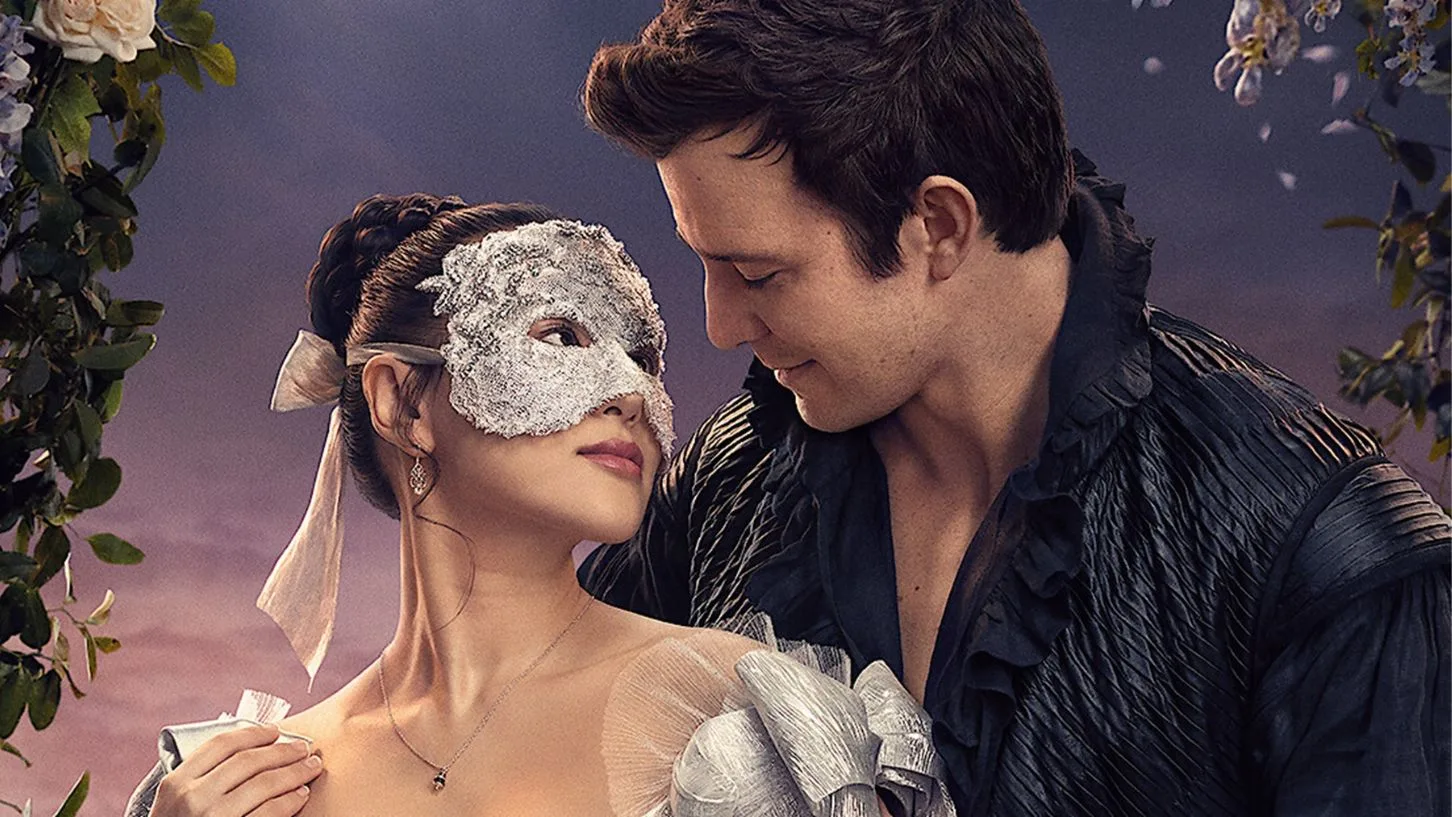The UK punk‑rap duo sparked outrage when Bob Vylan launched into chants of “Death to the IDF” and “Free Palestine” during their Glastonbury set on June 28, 2025. The incident drew immediate criticism from festival organizers, government officials, broadcasters, and even the Israeli embassy.
UK punk‑Rap Duo Sparks outrage at Glastonbury with “Death to the IDF” chant.
What happened on stage
London-based Bob Vylan—comprised of Bobby Vylan (vocals/guitar) and Bobbie Vylan (drums)—waved a Palestinian flag on the West Holts stage during their June 28 set. Amid a backdrop that read “The United Nations has called it a genocide. The BBC calls it a ‘conflict’,” Bobby shouted, “Alright, but have you heard this one though? Death, death to the IDF!” followed by “Hell yeah, from the river to the sea…Palestine must be, will be—inshallah—it will be free”.
Immediate backlash
Festival chiefs issued a swift response: Glastonbury’s organizers stated they were “appalled” and reiterated that the festival has “no place … for antisemitism, hate speech or incitement to violence”.
Broadcast partner BBC halted the broadcast, added onscreen content warnings, and said it would remove the set from iPlayer.
Politicians joined the condemnation: Prime Minister Keir Starmer called it “appalling hate speech,” while Health Secretary Wes Streeting labeled it “revolting,” making pointed remarks about the tragedy of Israelis killed or taken hostage at music festivals.
The Israeli embassy in the UK expressed its situation, calling the rhetoric “inflammatory and hateful”. Meanwhile, Avon and Somerset Police confirmed they have been reviewing the photos to decide whether criminal provisions were breached.
Wider festival context
Bob Vylan wasn’t alone in turning Glastonbury into a political platform. Belfast’s Irish‑language rap group Kneecap led chants supporting Palestine, despite member Mo Chara facing terrorism charges for prior links to Hezbollah imagery. The BBC opted not to livestream their performance; instead, it may later appear on demand.
Glastonbury’s 2025 lineup combined music, activism, and controversy—from pro‑Palestinian expressions to surprise appearances by Lorde and reunions by Pulp.
Debate: Free speech vs. incitement to violence
The freedom‑of‑expression angle
Bob Vylan and Kneecap defend their actions as acts of solidarity with Palestinians. Kneecap previously stated their lyrics call out genocide and U.S. support, not incite violence, though controversy surrounds their past chants, such as “up Hamas, up Hezbollah”. They insist the stage is a political venue.
The legal and ethical pushback
UK authorities are now asking hard questions: does chanting “Death to the IDF” cross from protest into criminal incitement? Under the UK’s Public Order and Communication Acts, rallying for violence is potentially punishable.
Politicians and watchdogs like the Campaign Against Antisemitism intend to press the BBC and Glastonbury, citing “deeply offensive” and “hateful” messaging.
Audience and artist responsibility
With nearly 200,000 attendees and 4,000 performers, Glastonbury is more than a festival—it’s a social stage. While organizers affirm they don’t endorse all views, they emphasize accountability for hate speech. Broadcasters, too, face scrutiny over vetting live performances.
The fallout and what lies ahead
• Legal action: Avon and Somerset officers are assessing whether charges are warranted.
• Broadcast regulations: The BBC’s decision to block the set raises questions about live-stream oversight.
• Festival policy: Will Glastonbury tighten rules for political performances in 2026?
• Public response: Online reactions remain polarized—some hail the performers as truth-tellers, others condemn them for hate speech.
The broader cultural context
These events reflect how major festivals have evolved into stages for political expression. Events like Coachella and Glastonbury have become arenas where the personal and political merge. Ireland‑UK punk‑rap acts are pushing the limits of protest in live music—and grappling with the consequences.
Final thoughts
The UK punk‑rap duo sparks outrage and is emblematic of a broader tension within modern music: the interplay of free expression, political protest, and potential legal boundaries. Bob Vylan’s chant of “Death to the IDF” has forced a reckoning among festival organizers, broadcasters, authorities, and audiences alike. As Glastonbury navigates its role in an ever‑polarized world, the events of June 28, 2025, mark a watershed moment—one that will shape the future landscape of music, activism, and accountability.



